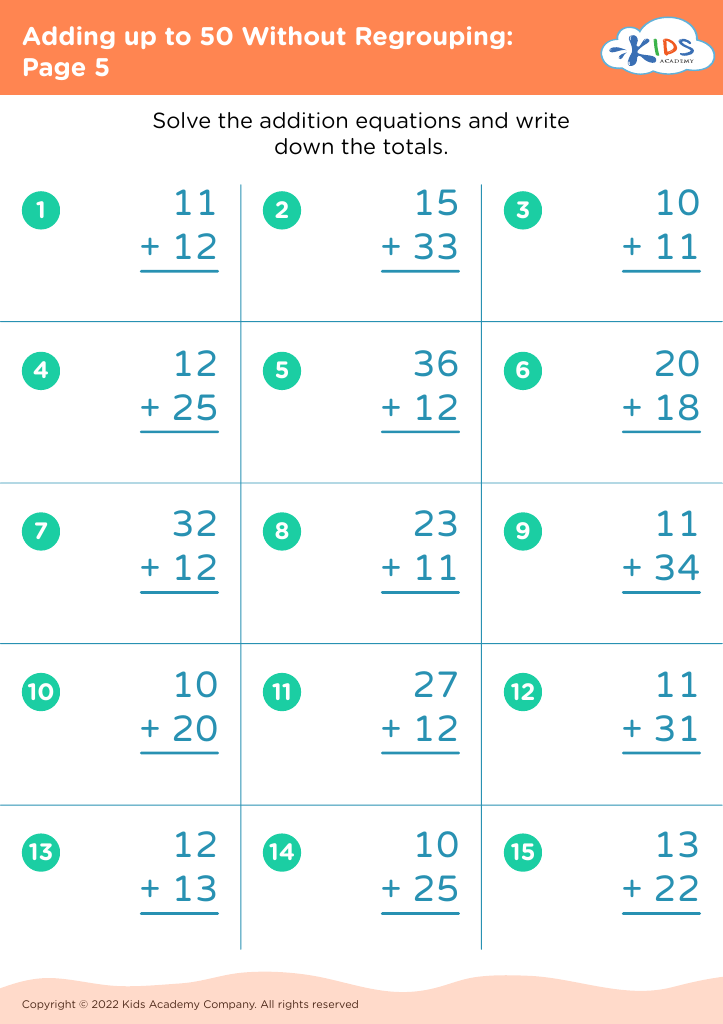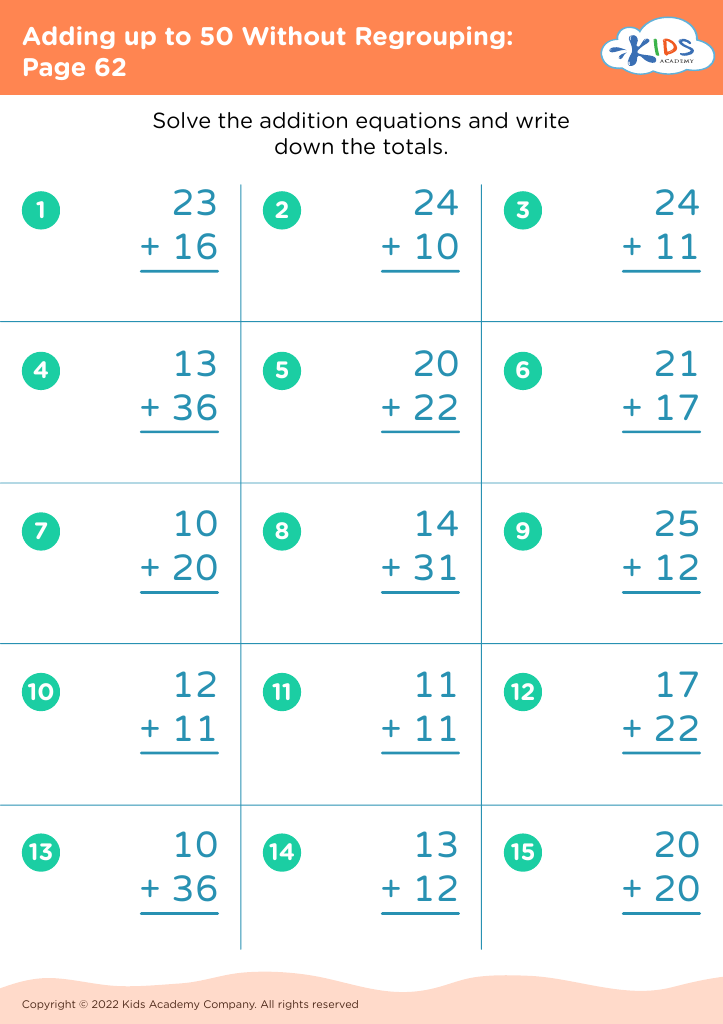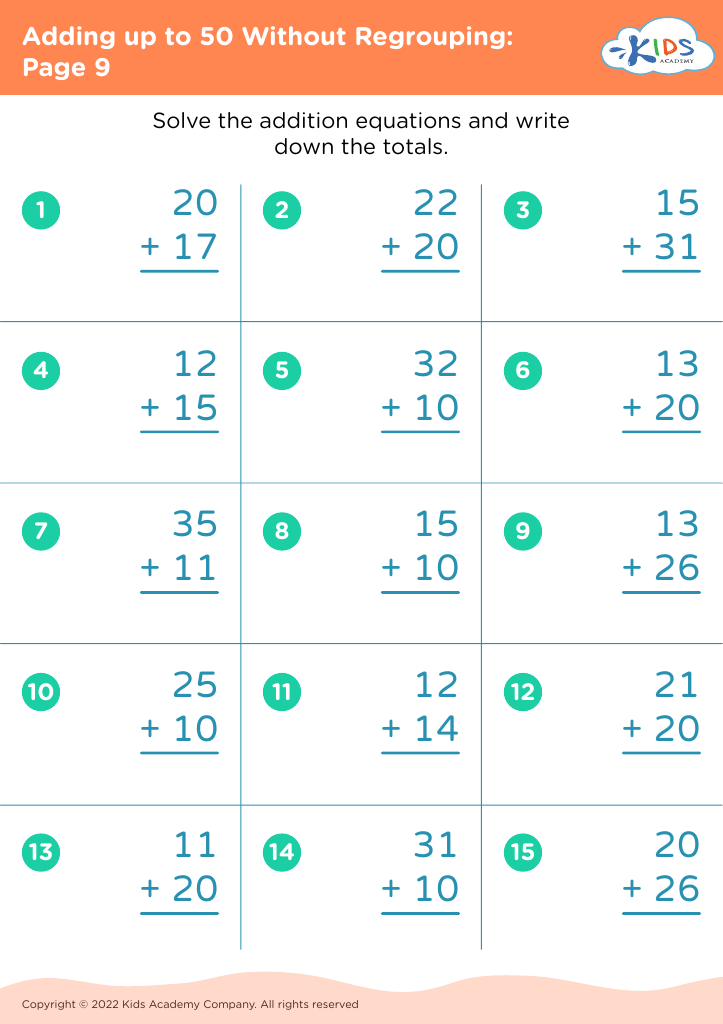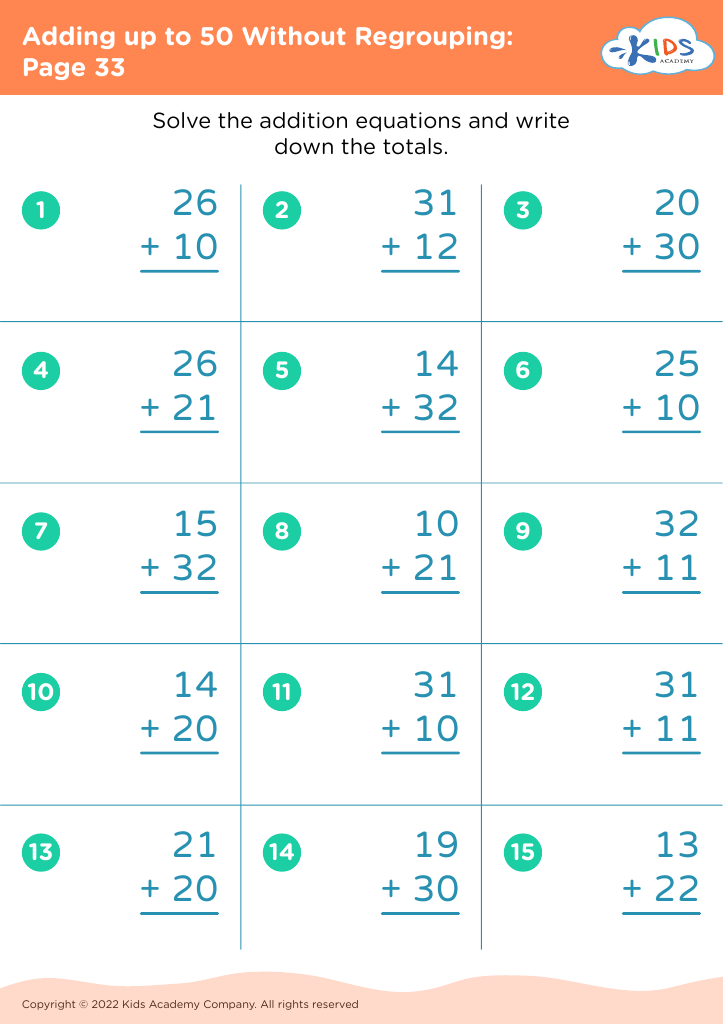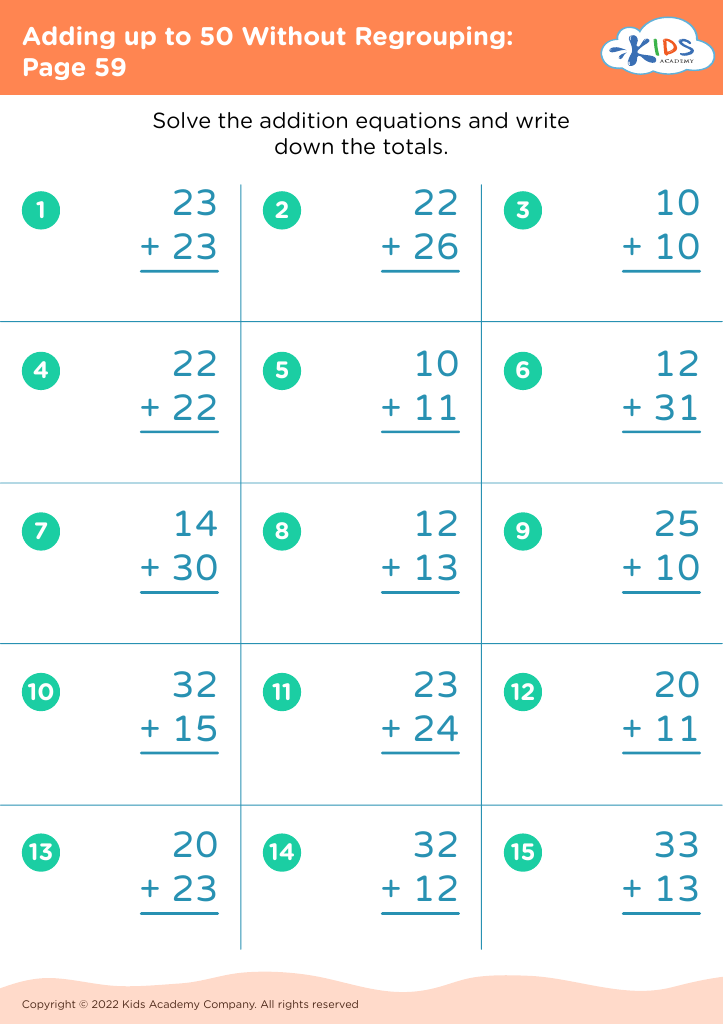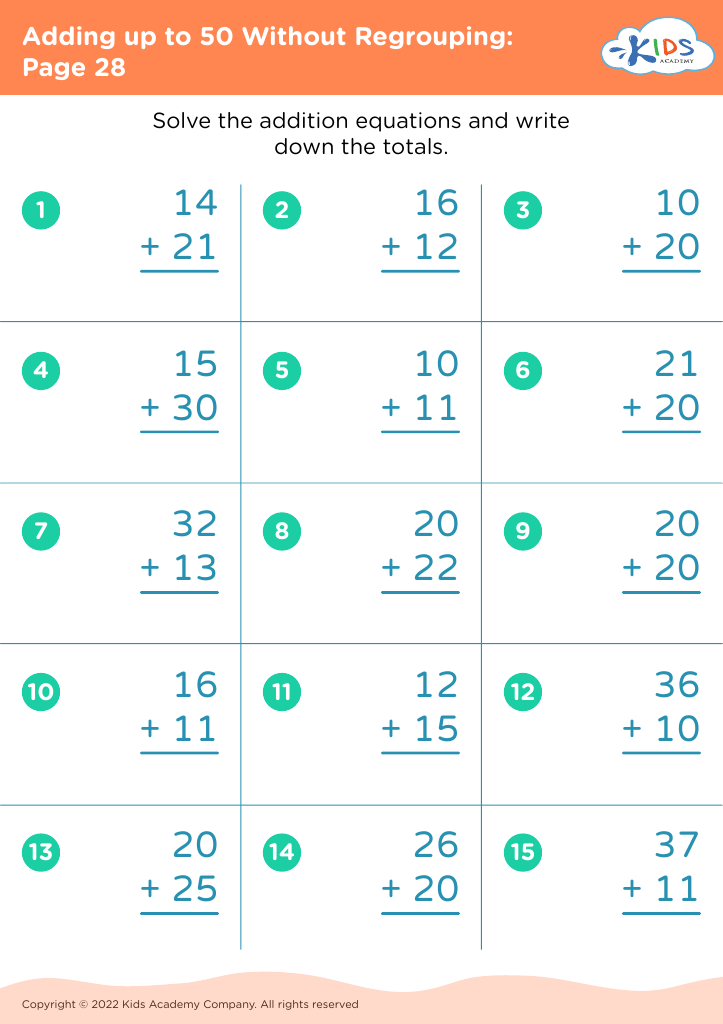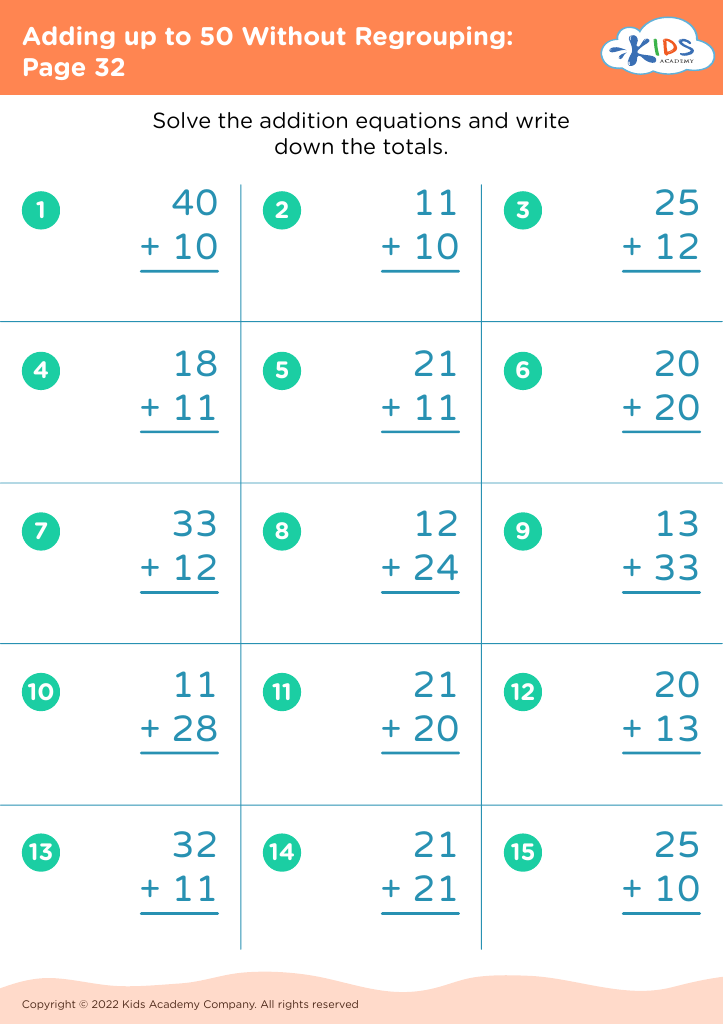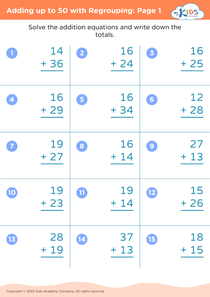Number Recognition Adding up to 50 Without Regrouping Worksheets for Ages 6-8
15 filtered results
-
From - To
Enhance your child's math skills with our "Number Recognition Adding Up to 50 Without Regrouping" worksheets designed specifically for ages 6-8. These engaging activities foster essential number recognition while introducing addition concepts up to 50. Tailored for early learners, our worksheets help children practice simple addition without the complexity of regrouping. By reinforcing number identification and enhancing math fluency, these resources encourage confidence in young learners. Ideal for home or classroom use, our worksheets provide a fun way to support your child’s mathematical journey. Explore our collection today and watch your child's number skills flourish!
Number recognition and addition skills are foundational for children's mathematical development, especially for ages 6-8. This is a critical stage where learners transition from understanding numbers to applying them in more complex operations. Number recognition — the ability to identify and understand numbers — serves as the building block for all arithmetic, enabling children to engage confidently with varied math problems.
When children can add up to 50 without regrouping, they strengthen their number sense and mental arithmetic skills. This competency enhances their ability to solve problems quickly and accurately, boosting their confidence in math. It prepares them for subsequent grades, where math becomes increasingly challenging, and lays the foundation for more advanced concepts like place value and multi-digit addition.
For parents and teachers, fostering this skill doesn’t just support academic achievement; it also helps develop critical thinking and problem-solving abilities. Engaging children in games and activities that practice number recognition and simple addition can make learning enjoyable. Moreover, a strong grasp of these basic skills aligns with educational standards and assessments, ensuring students perform well in classroom settings. By emphasizing number recognition and addition, we equip children with vital tools for lifelong learning and success.



